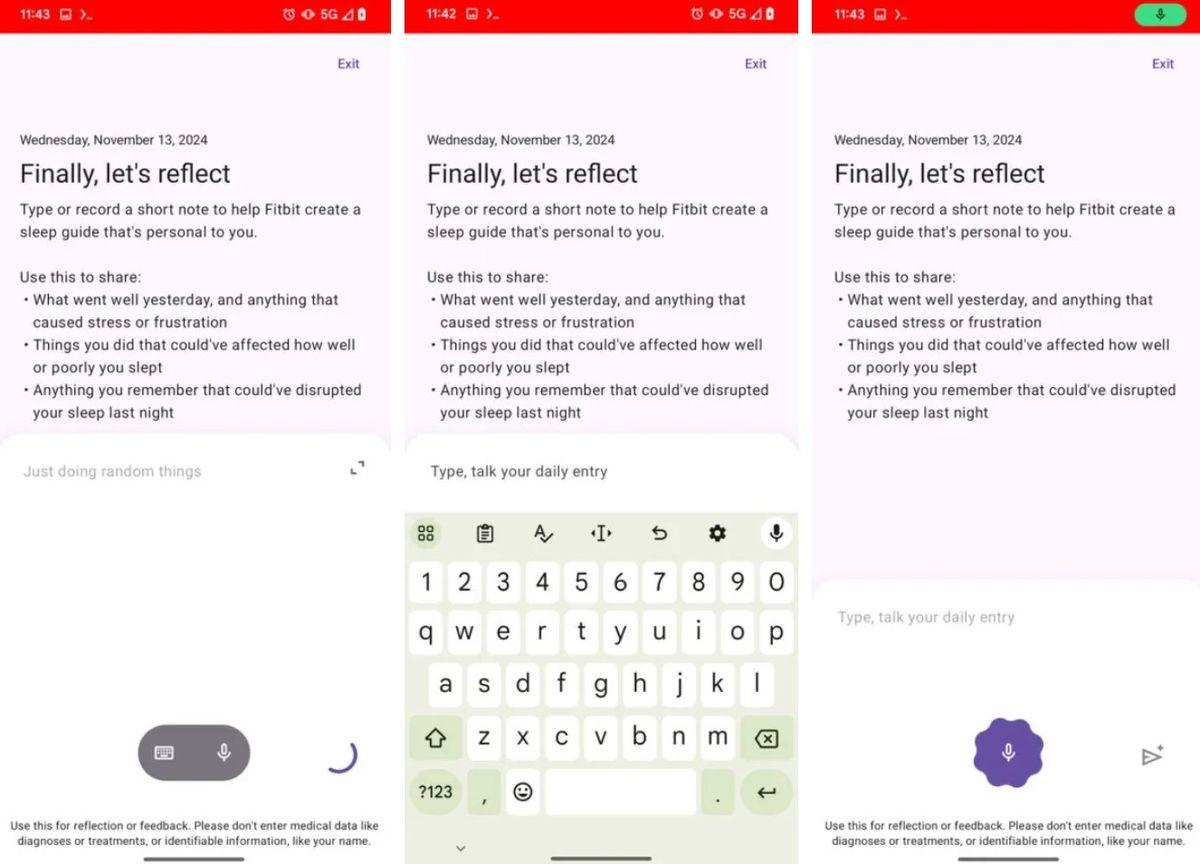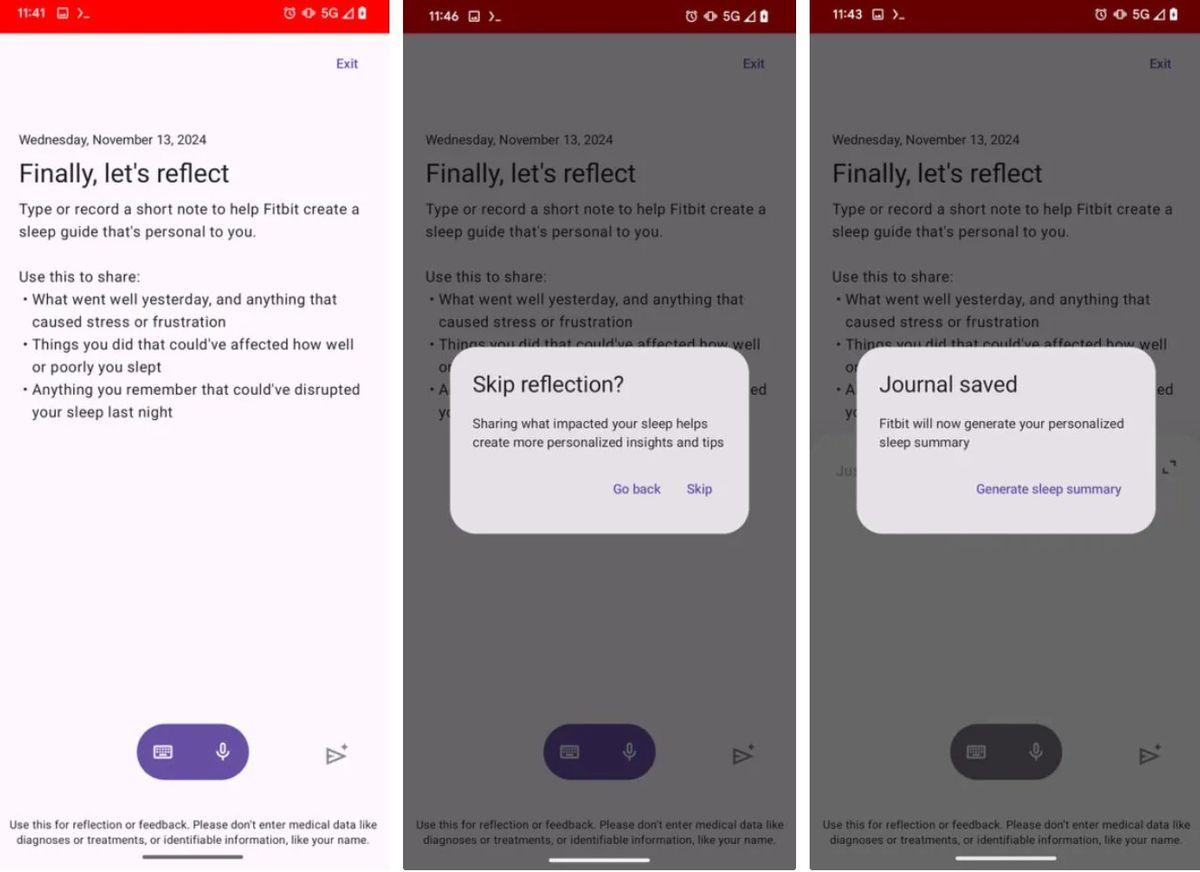Fitbit could soon tailor personalized sleep advice based on users’ logs and disruptions, potentially transforming how it assists users in improving their sleep quality.
New personalized sleep journal feature on the horizon
Recent updates to the Fitbit app indicate that users will soon gain access to a sleep journal designed to provide personalized sleep insights. As part of version 4.30.fitbit-mobile-110146981-694155636, this update focuses on allowing users to log daily factors that impact their sleep, further enhancing Fitbit’s existing features such as sleep tracking, bedtime reminders, and Sleep Score.
According to an APK teardown by Android Authority, the sleep journal will enable users to note and log aspects of their daily experiences that may interfere with their sleep quality. This capability will enhance the Fitbit app’s existing sleep-tracking features, as it encourages regular entries through friendly reminders like, “To get deeper insights and more personalized suggestions for better sleep, complete your journal each day.” Users can opt to type their entries or utilize voice-to-text functionalities, ensuring a seamless experience.

The feature promotes user engagement by nudging them to reflect on their daily habits and their effects on sleep. If a user skips the entry, they receive a gentle reminder, emphasizing the importance of sharing experiences to develop more personalized insights. When a user logs their sleep-related experiences, Fitbit will generate a customized sleep summary infused with AI-powered features, providing tailored tips and highlights based on that input.
The development hints at a nurturing, supportive approach toward user engagement, fostering a habit of logging relevant experiences nightly. The feature is suggested to be part of an exclusive section called “Sleep Labs,” where users may have the opportunity to delve deeper into various analyses regarding sleep patterns and disruptions. The app’s code also mentions that the “Sleep Lab” will allow the feature to leverage user data for enhanced tracking and predictions regarding sleep cycles, potentially opening up a wealth of knowledge about the relationships between sleep and daily behavioral patterns.
Fitbit’s AI boost with Google’s Health LLM
However, there’s a catch: this advanced feature seems to be a premium offering at first, positioned as an exclusive for Fitbit Premium subscribers. While the possibility remains that similar features may eventually become accessible to all users, early adopters of Fitbit Premium will have the first access to these innovative sleep management tools.

Beyond the sleep journal, Fitbit has introduced other improvements this year, including the addition of Fitbit Labs, which serves as a testing ground for experimental capabilities. One notable integration under this new umbrella is the Insights Explorer—this tool utilizes Google’s Gemini AI to analyze user data comprehensively, offering in-depth assessments of how activities affect sleep and other health metrics.
Further expanding its health tracking capabilities, Fitbit has also rolled out a blood glucose tracking feature designed for users managing diabetes. This functionality connects with compatible systems like OneTouch Reveal, allowing users to monitor glucose levels alongside other health statistics. Just like the sleep journal, the blood glucose tracking feature is relatively premium-centric, offering deeper insights for those who subscribe.
Overall, Fitbit is melding technology and personal health insights in a way that respects users’ individual experiences while providing tools aimed at fostering healthier habits. With these advancements, Fitbit is not just a fitness tracker but an integral companion on the journey to better sleep and overall well-being, aiming to make each night, and day, more reflective of personal needs.
Featured image credit: Kamil Switzalski/Unsplash





